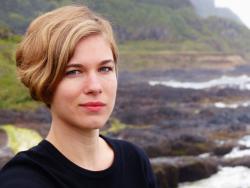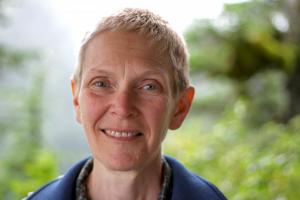 Kathryn Dudley, Faculty Director. Questions about what ethnography is and does—as an aesthetic genre, political practice, and interpersonal field of knowledge construction—are at the center of my teaching and scholarly work. Trained as an anthropologist, I am committed to a transdisciplinary vision of ethnography as a mode of inquiry at the cutting edge of queer theory, ethnic studies, performance studies, environmental studies, and public humanities. In this spirit, I direct Yale’s Initiative on Ethnography and Oral History, which, in conjunction with a graduate student working group, explores intersections between anthropology and cultural studies, including historical, literary, and psychoanalytic styles of analysis.
Kathryn Dudley, Faculty Director. Questions about what ethnography is and does—as an aesthetic genre, political practice, and interpersonal field of knowledge construction—are at the center of my teaching and scholarly work. Trained as an anthropologist, I am committed to a transdisciplinary vision of ethnography as a mode of inquiry at the cutting edge of queer theory, ethnic studies, performance studies, environmental studies, and public humanities. In this spirit, I direct Yale’s Initiative on Ethnography and Oral History, which, in conjunction with a graduate student working group, explores intersections between anthropology and cultural studies, including historical, literary, and psychoanalytic styles of analysis.My research focuses on embodied knowledge and social trauma under regimes of labor that are marginalized by transformations in global capitalism. The End of the Line: Lost Jobs, New Lives in Postindustrial America and Debt and Dispossession: Farm Loss in America’s Heartland are community studies, respectively, of deindustrialization and the demise of family farm agriculture. My documentary film Black Land Loss examines African American farmers’ class action lawsuit against the USDA. And Guitar Makers: The Endurance of Artisanal Values in North America chronicles the rise of a countercultural lutherie movement in the United States and Canada. My current work tracks the affects, materialities, and temporalities that subtend the postindustrial imaginary. Among other honors, I received the Margaret Mead Award of the American Anthropological Association and the Society for Applied Anthropology for writing that reaches broadly concerned publics.
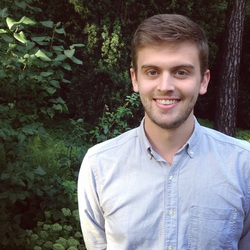 Matthew Archer is a PhD candidate in the School of Forestry and Environmental Studies at Yale. His research focuses on the meaning of sustainability in banks, corporations, and NGOs and is based on ethnographic fieldwork primarily in Geneva, Switzerland, but also in Belgium, the Netherlands, Ghana, and the US. He previously received an MSc in environmental economics from the London School of Economics and BAs in international studies and Chinese at the University of Mississippi.
Matthew Archer is a PhD candidate in the School of Forestry and Environmental Studies at Yale. His research focuses on the meaning of sustainability in banks, corporations, and NGOs and is based on ethnographic fieldwork primarily in Geneva, Switzerland, but also in Belgium, the Netherlands, Ghana, and the US. He previously received an MSc in environmental economics from the London School of Economics and BAs in international studies and Chinese at the University of Mississippi. Sierra Bell is an ethnographer of American culture and politics. She is an advanced Ph.D. candidate in Sociocultural Anthropology at Yale University. Her recently completed dissertation, Apocalyptic Politics: Liberty and Truth in Tea Party America, is based on in-depth ethnographic research she conducted among grassroots Tea Party activists in Connecticut. She traces the cultural dimensions of the Tea Party’s ‘limited government’ political economic principles, which are oriented to what she calls ‘apocalyptic politics,’ a form of critique that implicitly longs for national destruction and redemption. Her work explores activists’ representational politics, epistemological approaches, theories of neoliberal power, longings for personal sovereignty, and efforts to understand how wealth and power have become so concentrated in 21st century America.
Sierra Bell is an ethnographer of American culture and politics. She is an advanced Ph.D. candidate in Sociocultural Anthropology at Yale University. Her recently completed dissertation, Apocalyptic Politics: Liberty and Truth in Tea Party America, is based on in-depth ethnographic research she conducted among grassroots Tea Party activists in Connecticut. She traces the cultural dimensions of the Tea Party’s ‘limited government’ political economic principles, which are oriented to what she calls ‘apocalyptic politics,’ a form of critique that implicitly longs for national destruction and redemption. Her work explores activists’ representational politics, epistemological approaches, theories of neoliberal power, longings for personal sovereignty, and efforts to understand how wealth and power have become so concentrated in 21st century America.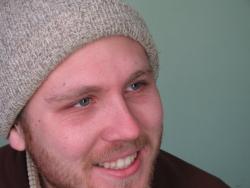 Paul Burow is a student in the combined doctoral degree program between the Department of Anthropology and School of Forestry & Environmental Studies at Yale University. His work focuses on wildlife conservation, multi-species entanglements, and settler colonialism in North America’s Intermountain West. He draws upon Glen Coulthard’s notion of “land as a relationship” in which mutual obligations among human peoples and other-than-human beings constitute the land itself. His dissertation project is an ethnographic exploration of the ways settler colonialism transforms these relationships, and what implications that holds for Indigenous peoples and settler society. My theoretical orientation draws from the interdisciplinary fields of environmental anthropology, environmental history, Native American & Indigenous studies, American studies and conservation/landscape ecology.
Paul Burow is a student in the combined doctoral degree program between the Department of Anthropology and School of Forestry & Environmental Studies at Yale University. His work focuses on wildlife conservation, multi-species entanglements, and settler colonialism in North America’s Intermountain West. He draws upon Glen Coulthard’s notion of “land as a relationship” in which mutual obligations among human peoples and other-than-human beings constitute the land itself. His dissertation project is an ethnographic exploration of the ways settler colonialism transforms these relationships, and what implications that holds for Indigenous peoples and settler society. My theoretical orientation draws from the interdisciplinary fields of environmental anthropology, environmental history, Native American & Indigenous studies, American studies and conservation/landscape ecology.Karla Cornejo Villavicencio is a doctoral candidate in American Studies. She is interested in reported non-fiction with an ethnographic bent. She writes about urban and natural landscapes, migrants, science, and literature.
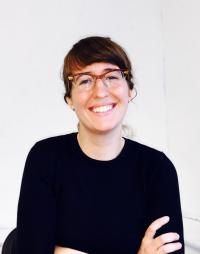 Kristin Hankins is currently pursuing a Ph.D. in American Studies. Before coming to Yale, she worked as a program, project and exhibition coordinator at a public art organization in Philadelphia. She is interested in urban history, public space, visual studies, and forces and interpretations of change within American cities. Kristin is the coordinator of the EOH Working Group.
Kristin Hankins is currently pursuing a Ph.D. in American Studies. Before coming to Yale, she worked as a program, project and exhibition coordinator at a public art organization in Philadelphia. She is interested in urban history, public space, visual studies, and forces and interpretations of change within American cities. Kristin is the coordinator of the EOH Working Group.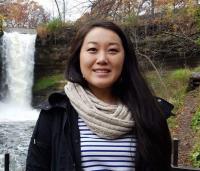 LiLi Johnson is a Ph.D. candidate in American Studies, and is also pursuing the certificate in Women’s, Gender, & Sexuality Studies. She holds a BA in Social and Cultural Analysis from NYU with concentrations in Asian Pacific American Studies and Gender and Sexuality Studies. Most broadly, LiLi’s research focuses on cultural studies of science particularly in relation to constructions of race, kinship, and affect. Her dissertation project examines technologies of Asian American family formation in the 20th and 21st centuries.
LiLi Johnson is a Ph.D. candidate in American Studies, and is also pursuing the certificate in Women’s, Gender, & Sexuality Studies. She holds a BA in Social and Cultural Analysis from NYU with concentrations in Asian Pacific American Studies and Gender and Sexuality Studies. Most broadly, LiLi’s research focuses on cultural studies of science particularly in relation to constructions of race, kinship, and affect. Her dissertation project examines technologies of Asian American family formation in the 20th and 21st centuries. Heidi K. Lam is an anthropologist specializing in Japan, tourism, popular entertainment, the performing arts, and the political economy of the culture industry. She is currently pursuing a Ph.D. in Anthropology at Yale University. Her dissertation project ethnographically examines the experiences generated within commercial heritage-themed spaces in Japan, especially during the most recent wave of touristic promotion. Focusing on frontline encounters among the staff, actors, tourists, and other kinds of visitors, the project questions the company’s employment of bodily engagement (taiken) and role-play for cultural communication and their unanticipated effects.
Heidi K. Lam is an anthropologist specializing in Japan, tourism, popular entertainment, the performing arts, and the political economy of the culture industry. She is currently pursuing a Ph.D. in Anthropology at Yale University. Her dissertation project ethnographically examines the experiences generated within commercial heritage-themed spaces in Japan, especially during the most recent wave of touristic promotion. Focusing on frontline encounters among the staff, actors, tourists, and other kinds of visitors, the project questions the company’s employment of bodily engagement (taiken) and role-play for cultural communication and their unanticipated effects.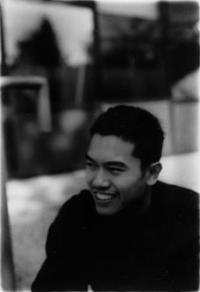 Tri Phuong is a PhD student at Yale University’s Department of Anthropology. His current research focuses on new media technology, Vietnamese youth culture, social movements, postsocialist transitions, and the anthropology of the state.
Tri Phuong is a PhD student at Yale University’s Department of Anthropology. His current research focuses on new media technology, Vietnamese youth culture, social movements, postsocialist transitions, and the anthropology of the state.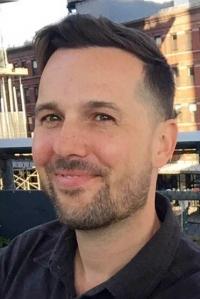 Joey Plaster is a doctoral candidate and lecturer in American Studies at Yale University. His dissertation draws on ethnographic and oral history research to represent the survival of queer homeless youth living in San Francisco’s Tenderloin district, from the 1960s to the present. The recipient of the American Historical Society’s 2010 Allan Berube Prize for work in public history, Plaster has been a Martin Duberman Visiting Scholar at the New York Public Library and a fellow at the Center for Gay and Lesbian Studies at the Graduate Center of the City University of New York. From 2006-2011, Joey worked as a radio producer, oral historian, and public humanities director affiliated with San Francisco’s GLBT Historical Society. He has published his scholarship in Radical History Review. Joey is coordinator of the EOH Initiative. Visit his personal website here.
Joey Plaster is a doctoral candidate and lecturer in American Studies at Yale University. His dissertation draws on ethnographic and oral history research to represent the survival of queer homeless youth living in San Francisco’s Tenderloin district, from the 1960s to the present. The recipient of the American Historical Society’s 2010 Allan Berube Prize for work in public history, Plaster has been a Martin Duberman Visiting Scholar at the New York Public Library and a fellow at the Center for Gay and Lesbian Studies at the Graduate Center of the City University of New York. From 2006-2011, Joey worked as a radio producer, oral historian, and public humanities director affiliated with San Francisco’s GLBT Historical Society. He has published his scholarship in Radical History Review. Joey is coordinator of the EOH Initiative. Visit his personal website here. 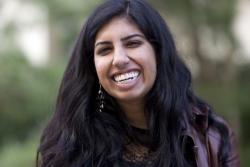 Sasha Sabherwal is a PhD student in American Studies. She received her B.A. magna cum laude from the University of California, Irvine with degrees in Gender and Sexuality Studies, International Studies, and Political Science. Her research interests include transnationalism, gender and globalization, postcolonialism, and diaspora studies. She is also committed to thinking about ethnography as multi-sited and in flux. She co-organizes the Public Humanities Working Group and joined the Ethnography and Oral History Working Group in 2014.
Sasha Sabherwal is a PhD student in American Studies. She received her B.A. magna cum laude from the University of California, Irvine with degrees in Gender and Sexuality Studies, International Studies, and Political Science. Her research interests include transnationalism, gender and globalization, postcolonialism, and diaspora studies. She is also committed to thinking about ethnography as multi-sited and in flux. She co-organizes the Public Humanities Working Group and joined the Ethnography and Oral History Working Group in 2014.Maile Speakman is a hemispheric scholar who studies questions of circulation, diaspora, digital culture, and intellectual history in the Americas. Her current project examines an alternative media network in Cuba called el paquete semanal and considers the politics of internet access, telecommunications infrastructure, and U.S. imperialism in Cuba. Before pursuing a PhD in American Studies at Yale, Maile received an M.A. in Latin American Studies from Tulane University. For her M.A. thesis “Performance Cubano: Reading Queer Theory in Havana,” she employed ethnographic and archival methods to document the emergence of U.S. queer theory in Havana in the early 2000s. This project built on her undergraduate work in anthropology, which examined how the Cuban state policed queer and countercultural youth space in contemporary Havana. Maile has also worked as an organizer for the Tepoztlán Institute of the Transnational History of the Americas and as an ethnographer on the Oaxacan Routes of Migration project.
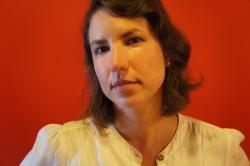 Andrea Quintero is a Ph.D. candidate in the American Studies program at Yale University. She holds a master’s degree in the History of Decorative Arts, Design, and Culture from the Bard Graduate Center where she won the Clive Wainwright Award for best thesis. Quintero uses material culture and ethnographic approaches to study consumer culture and migration in the contemporary United States. Her dissertation investigates the aesthetics and material culture of multiethnic neighborhoods in New York City. In 2014, she designed and taught the undergraduate course “The Material Culture of American Belonging” at Yale. Quintero was awarded the Simon J. Bronner Award for Outstanding Graduate Paper at the Eastern American Studies Association conference in 2013 and received the A. Bartlett Giamatti Fellowship in recognition of extraordinary academic accomplishments from Yale. “American Outsiders and the Material Culture of Home,” a panel Quintero organized for the 2016 annual meeting of the American Studies Association, was selected by American Studies Material Culture Caucus as a sponsored event.
Andrea Quintero is a Ph.D. candidate in the American Studies program at Yale University. She holds a master’s degree in the History of Decorative Arts, Design, and Culture from the Bard Graduate Center where she won the Clive Wainwright Award for best thesis. Quintero uses material culture and ethnographic approaches to study consumer culture and migration in the contemporary United States. Her dissertation investigates the aesthetics and material culture of multiethnic neighborhoods in New York City. In 2014, she designed and taught the undergraduate course “The Material Culture of American Belonging” at Yale. Quintero was awarded the Simon J. Bronner Award for Outstanding Graduate Paper at the Eastern American Studies Association conference in 2013 and received the A. Bartlett Giamatti Fellowship in recognition of extraordinary academic accomplishments from Yale. “American Outsiders and the Material Culture of Home,” a panel Quintero organized for the 2016 annual meeting of the American Studies Association, was selected by American Studies Material Culture Caucus as a sponsored event. 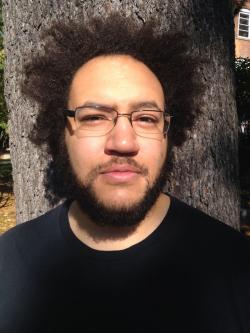 Keahnan Washington is pursuing a joint PhD in Socio-Cultural Anthropology and African American Studies at Yale University. Keahnan is a Visiting Scholar at the University of New Orleans’ Midlo Center for the Study of New Orleans, and is currently conducting fieldwork in New Orleans for his dissertation project using ethnographic methods and archival research to understand how New Orleanians, impacted contemporarily by the carceral state and historically through legacies of carceralization and enslavement in the Deep South, envision and enact concepts of freedom, resistance, and citizenship in their political struggles.
Keahnan Washington is pursuing a joint PhD in Socio-Cultural Anthropology and African American Studies at Yale University. Keahnan is a Visiting Scholar at the University of New Orleans’ Midlo Center for the Study of New Orleans, and is currently conducting fieldwork in New Orleans for his dissertation project using ethnographic methods and archival research to understand how New Orleanians, impacted contemporarily by the carceral state and historically through legacies of carceralization and enslavement in the Deep South, envision and enact concepts of freedom, resistance, and citizenship in their political struggles. 